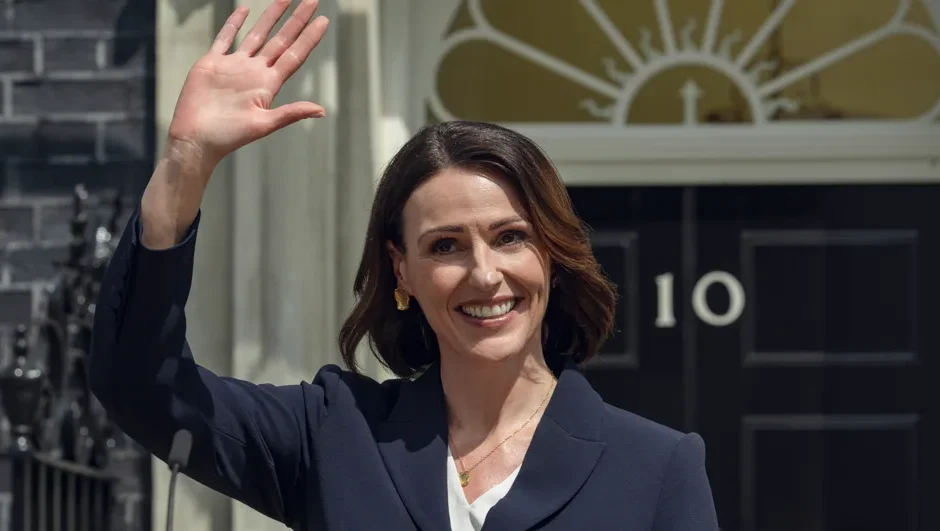Suranne Jones has long been one of Britain’s most versatile actresses, capable of inhabiting roles that range from period melodrama to psychological thriller. With her new Netflix series Hostage, she once again proves her ability to anchor a story with presence, precision, and depth. Playing Prime Minister Abigail Dalton, she brings to the screen a leader under extraordinary pressure, balancing the fate of a nation with the fate of her family in a performance that captures both authority and fragility.
Jones, who first became a household name in the early 2000s through her breakout role on Coronation Street, has since built a career marked by risk-taking choices. She was acclaimed for her portrayal of Anne Lister in Gentleman Jack, a role that earned her awards recognition and confirmed her reputation as an actress unafraid of bold, unconventional characters. She has also played emotionally charged roles in series such as Doctor Foster, where her portrayal of a betrayed wife navigating marital collapse brought her widespread acclaim. What connects these characters is her ability to fuse strength with vulnerability, presenting women whose power does not shield them from pain but makes them all the more compelling to watch.
In Hostage, Jones faces one of her most demanding roles to date. Her Prime Minister is not a caricature of power but a woman confronted with impossible choices, forced to project calm authority to the public while privately facing anguish. The duality of public strength and private torment plays directly into Jones’s strengths as a performer. She captures the contradictions of leadership in a world where politics and personal lives collide, giving the series its heart and credibility.
Colleagues and collaborators have often spoken about her dedication to detail, and it shows in the way she grounds Abigail Dalton in subtle gestures and controlled expressions. Viewers see a leader who is constantly calculating, yet never detached from the human stakes of her decisions. Even in the most heightened moments of suspense, Jones refuses to let the character slip into stereotype. She is commanding without being cold, empathetic without appearing weak, a balance that few actors could achieve so convincingly.
Jones has also taken on the role of executive producer with Hostage, underscoring her growing influence behind the camera. In recent years she has become more involved in shaping the kinds of stories she wants to tell, lending her voice to projects that prioritize strong, complex women at the center. For her, this step is a natural extension of her career, one that reflects her commitment not only to performance but to the creative vision that surrounds it.
What makes Jones particularly distinctive is her willingness to reinvent herself across genres. From crime drama in Scott & Bailey to historical biography in Gentleman Jack to taut thrillers such as Doctor Foster, she has shown an ability to disappear into characters who could not be more different from one another. Each role expands the range of her career, making her one of the most consistently interesting actresses working today.
With Hostage, she adds yet another chapter, this time stepping into the role of a political leader who must weigh private love against public duty. It is a story that resonates in the current climate, and Jones ensures that its urgency is matched by believability. Her performance elevates what might otherwise be a conventional thriller, turning it into a study of character under fire.
For audiences around the world, Suranne Jones continues to be a performer worth watching. She has crafted a career built not on repetition but on evolution, moving from one challenging role to the next with confidence and skill. Hostage is the latest proof that she is more than an accomplished actress; she is a storyteller who understands the power of character-driven drama. In Abigail Dalton, she has found another role that lingers long after the screen goes dark, a testament to her enduring ability to bring complexity and humanity to every part she plays.
Would you like me to enrich this profile even more with background about Jones’s early career on stage and how theater shaped her screen work, so the piece has a fuller arc of her career?




